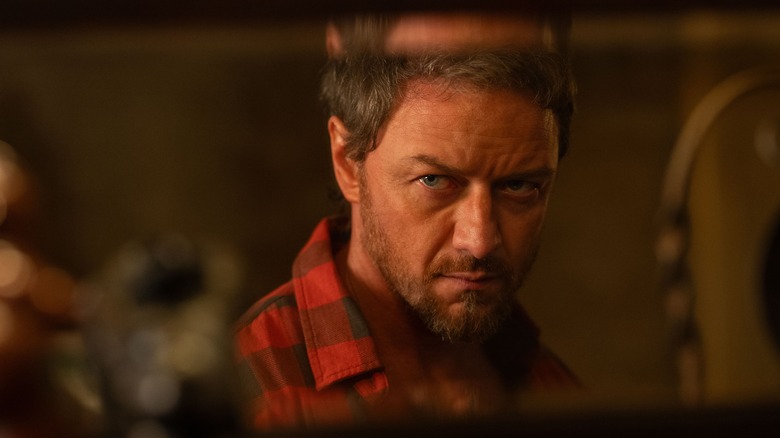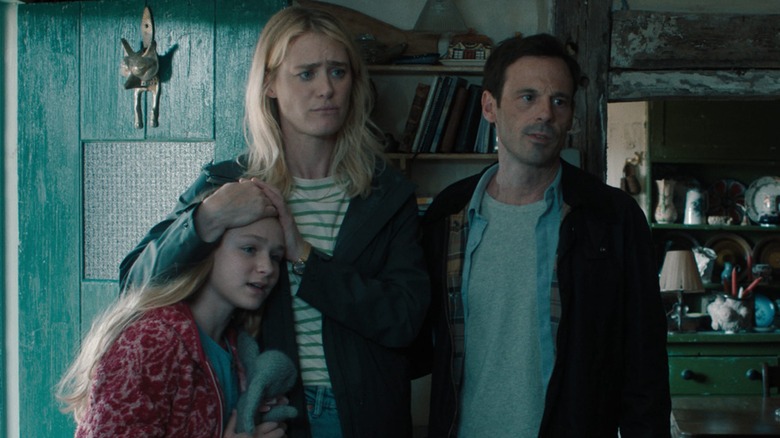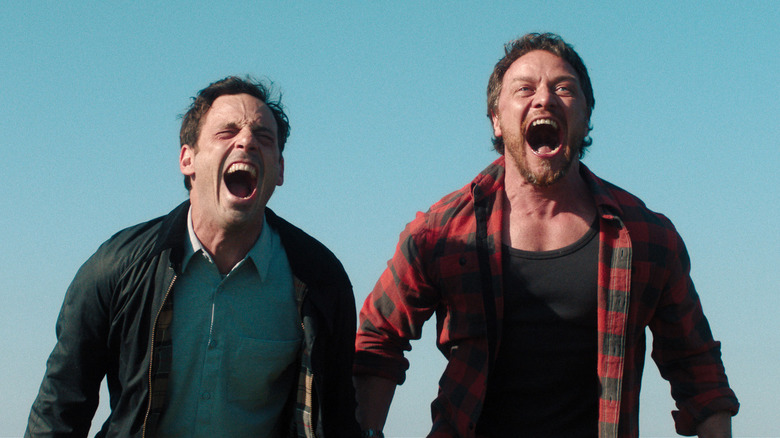Speak No Evil Review: James McAvoy Stuns In Disturbing Danish Thriller Remake
- James McAvoy delivers one of his most engaging performances ever
- The film feels genuinely character driven
- As funny as it is frightening
- The final act feels a little more drawn out than necessary
Often, thrillers and horror films about regular people in dangerous situations have protagonists who are presented as insultingly unintelligent for structural reasons. The tropes are as recognizable as they are tired: a woman all alone running back into a house where the killer might be; our bloody, war-torn heroes believing the villain is really dead and not just playing possum. But "Speak No Evil," the new film from "Eden Lake" director James Watkins, is an outlier in this regard.
It is, above all else, a psychological potboiler that takes the time to draw its characters well enough that when they act against their best interests, it is informed by their own tragic flaws and not merely because the film needs them to be fools for the story to unfold. In "Speak No Evil," a married couple named Ben (Scoot McNairy) and Louise Dalton (Mackenzie Davis) and their young daughter Agnes (Alix West Lefler) spend a week in the English countryside with a couple, Paddy (James McAvoy) and Ciara (Aisling Franciosi), that they met on holiday in Italy. What begins as an awkward comedy of manners slowly devolves into a harrowing thriller.
The identically titled Danish film it's based on, from director Christian Tafdrup, features many of the same plot beats in much the same order. But because Tafdrup seeks to skewer the inherent conservatism of social mores and the way in which they enable predation, it is difficult to watch his film and feel anything about what befalls his protagonists. They just come off too stupid and insipid to pity or mourn for. (It also possesses a haunting climax that makes the original almost too disturbing to finish.)
Watkins, however, employs a brilliant ensemble and a game script, relying on his performers' sterling character work to create something that is no less discomfiting, but leagues more watchable and entertaining.
An uncomfortable countryside getaway
When they first meet Paddy and his wife Ciara, Ben and Louise have plenty of good reason to strike up a convenient kinship. Ben doesn't seem to be enjoying their vacation in Italy. Whether its the mild distance between him and his own wife or persistent frustration with their daughter Agnes and her emotional support stuffy bunny, this getaway has allowed him to get away from the fissures in their family's facade of peace. But then there's Paddy and Ciara, making them laugh from across the table at a group dinner, and the two of them on a vespa with their son Ant (Dan Hough), striking a care-free silhouette as the fun version of Ben's own clan.
Once returned to the drab, rainy flat they share in London, with all the warm colors of their holiday drained from the film's color palette and the humdrum reality of home life returned, it's perfectly normal to see why Ben entertains taking Paddy up on the postcard invitation he sent. (Even as Louise accurately remarks that they barely know these people to be trekking afar to spend a whole week with them.) Between the lure of Ant, a mute quiet boy who seemed to take a liking to the always anxious Agnes, and the ever-present specter of Louise's recent infidelity, Ben's puppy dog eyes are enough to get her to acquiesce.
From the jump, things don't seem quite right, but every red flag the viewer will immediately recognize as intense foreshadowing for the horrors to come, there's a valid, reasonable explanation for the discomfort. Every disagreement and cringe-inducing faux pas would be right at home on an episode of "The Office," if it weren't for the omnipresent sense of dread laying in all the awkward pauses. Cooking a bird for a vegan guest? Maybe poor taste or forgetfulness, but also could be malice! James Watkins structures his adaptation's script in such a way that the transition from uncomfortable comedy to unsettling thriller moves naturally up a scale of escalation.
But the see-saw between "are these people murderers?" and "are we just being uptight?" functions so well because of the performers and the believability they imbue into their dynamics.
Is the cure to male loneliness vacationing with potential murderers?
Scoot McNairy plays Ben as so terminally impotent, that you never think he's stupid for not being alarmed. You accept that he's just so conflict averse and so desperate to make new friends, that he goes along with anything. James McAvoy, by contrast, is so terrifyingly captivating that the audience could be forgiven for ignoring how obviously unhinged he is in the off-chance that he's just a weird but ultimately well meaning guy. One minute he's bringing himself to tears quoting Philip Larkin's poem "This Be The Verse," then the next he has his wife under the table at dinner pantomiming performing oral sex on him as a bit. The whiplash between his mood swings are a wonder to behold. To go from belting Belinda Carlisle to abusing his son for not dancing on beat to "Cotton Eye Joe," McAvoy delivers more engrossing and fascinating range than even his multiple personality work in "Split."
Rather than the broader observations about the intricacies of social expectation from the original, James Watkins seems to be skewering a specific kind of guy with McAvoy's Paddy. The sort of rustic, DIY guy who seems personally insulted by political correctness and the constant surface level ways we lie to one another in the name of alleged decency. It's hard not to imagine a version of this film that is explicitly a quiet character study, more open-ended in the conclusions it wants you to draw from the contrast between these dueling married couples. That version might have made more room for Mackenzie Davis and Aisling Franciosi's characters to be fleshed out more outside of their relationships to their opposing patriarchs. (As it stands, however, Davis is the film's secret weapon by the time the third act unfolds.)
But thankfully, "Speak No Evil" isn't that ponderous. It wrestles with similar ideas as its source material, sure, but when push comes to shove, Watkins is more than happy to deliver all the violence and hysteria that's been bubbling underneath the surface the whole time. Audiences won't get antsy waiting to get to the fireworks factory, though. The humor and tension are plenty filling on their own, keeping the mind busy until the proceedings devolve into the requisite carnage American audiences will be salivating for.
"Speak No Evil" premieres in theaters on September 13.


